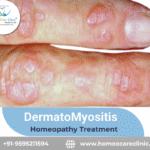A healthy diet for the heart can significantly reduce the complications for those suffering from heart disease. Diet chart for cardiac patients, controls cholesterol, blood pressure, and sugar in the blood. Here is a diet chart for cardiac patients, foods to avoid for cardiac patients, and an all-comprehensive cardiac diet plan food list to help you guide heart-friendly eating.
Cardiac Diet Chart
| Time | Vegetarian Option | Non-Vegetarian Option |
| 6:30 AM | Warm water with lemon or green tea – 1 glass | Warm water with lemon or coconut water – 1 glass |
| 7:30 AM (Breakfast) |
Option 1: Oats porridge with chia seeds, flaxseeds, and walnuts – 1 bowl Option 2: Whole wheat toast with avocado |
Option 1: Egg whites scrambled with spinach and tomatoes – 2 egg whites Option 2: Boiled eggs (egg whites) with whole wheat toast – 2 boiled egg whites with 2 slices of toast |
| 10:30 AM (Snack) | Fresh fruit like apple, pear, or berries – 1 medium fruit | A handful of almonds or walnuts – 10 nuts |
| 1:00 PM (Lunch) |
Option 1: Brown rice with moong dal and sautéed spinach or broccoli – 1 cup rice, 1 bowl dal, 1 cup spinach Option 2: Quinoa salad with cucumber and olive oil dressing – 1 bowl of quinoa salad |
Option 1: Grilled chicken breast with steamed vegetables and brown rice – 1 cup chicken, 1 cup vegetables, 1 cup rice Option 2: Fish curry with quinoa and a side of steamed spinach – 1 serving of fish curry, 1 bowl of quinoa |
| 4:00 PM (Snack) |
Sprouted moong with lemon and salt – 1 bowl Roasted makhana – 1 handful |
Grilled chicken salad with lemon and olive oil dressing – 1 cup salad A handful of almonds or walnuts – 10 nuts |
| 6:30 PM (Evening Drink) | Green tea or herbal tea – 1 cup | Coconut water or buttermilk – 1 glass |
| 8:00 PM (Dinner) |
Option 1: Khichdi with moong dal and steamed vegetables – 1 small plate Option 2: Roti with methi sabzi and curd – 2 rotis, 1 bowl of methi sabzi, 1 small bowl of curd |
Option 1: Grilled fish (salmon or mackerel) with sautéed broccoli and spinach – 1 serving fish, 1 cup vegetables Option 2: Chicken stew with a side of lightly spiced vegetables – 1 serving chicken stew, 1 cup vegetables |
| 9:30 PM (Before Bed) |
Chamomile tea – 1 cup Warm milk with turmeric or almond milk – 1 glass |
Warm milk with turmeric or almond milk – 1 glass |
Do’s:
Foods to Eat for Cardiac Patients
A heart-healthy diet emphasizes the consumption of nutrient-rich foods without unhealthy fats and is beneficial for cardiovascular health. Therefore, some of these foods that should feature on the list include:
- Whole Grains: Oats, brown rice, and quinoa are high in fiber and help reduce cholesterol hence making them very healthy for the heart.
- Leafy Greens: Spinach, kale, and broccoli are all packed with vitamins, minerals, and antioxidants that promote healthy living of the cardiovascular system.
- Omega-3 Rich Foods: Omega-3 fatty acids in fatty fish like salmon, mackerel, and sardines reduce inflammation as well as lower the risk of developing heart disease.
- Nuts and Seeds: Healthy fats present in almonds, walnuts, chia seeds, and flaxseeds help lower cholesterol.
- Fruits: Utilize fruits such as berries, apples, oranges, and pears since these have a high amount of fiber, antioxidants, and vitamins that promote heart health.
- Legumes: Some of the very good legume sources like beans and lentils, including moong dal and chickpeas, are rich in plant-based protein and fiber which raise cholesterol levels.
- Olive oil: Use extra virgin olive oil instead of cooking with vegetable oils as it is a better source of fat. It is rich in monounsaturated fats and has heart-protecting properties.
Don’ts:
Foods to Avoid for Cardiac Patients (What to Limit)
There are several foods that have a high risk of heart disease as they create high cholesterol levels, increase blood pressure, and cause inflammation. Some such foods should be at least limited to only minimum intake or completely avoided:
- Saturated and Trans Fats: They can be seen in foods like fried foods, butter, processed meats, and full-fat dairy products and raise the amount of LDL (bad cholesterol) and the risk of cardiac disease.
- Refined Carbohydrates and Sugars: Refined carbohydrates and sugars include white bread, pasta, pastries, and snacks. They cause blood sugar spikes and weight gain and contribute to the likelihood of diabetes, which can impair the health of the heart.
- Excessive salt would include food items such as canned soups, chips, processed meats, and fast food, as they are known to increase blood pressure, which increases the potential risk of heart disease.
- Meat: Beef, pork, and lamb’s red cuts contain saturated fats that later elevate the cholesterol levels
- Processed Meats: Packaged snacks, frozen meals, etc. contain high levels of trans fats, sodium, and sugars that cause heart diseases.
- Sugary Beverages:- Beverages: Soft drinks, energy drinks, and fruit juices, with added sugar elevate triglyceride levels and result in weight gain.
- Alcohol: Limit alcohol consumption as alcohol increases blood pressure, promotes weight gain, and disrupts heartbeat.
Additional Recommendations for Cardiac Patients
- Keep Your Portions Under Control: Overconsumption of even healthy foods increases calorie value and promotes weight gain, and every ounce of that will irritate the heart.
- Exercise regularly: One of the most effective ways to care for a patient’s heart is through regular physical activity. Engage in activities such as walking or swimming and practice yoga.
- Limit Processed Foods: Reduce the intake of foods that contain undetectable fats, sugars, and salt.
- Monitor Cholesterol: Keep abreast of cholesterol levels with a diet that promotes good HDL and lowers the level of bad LDL.
- Stay hydrated: drink water within the day to maintain blood pressure, regulate heart functions. Conclusion
This diet chart, specially designed for cardiac patients, thereby ensuring that these heart-healthy diets are significantly available in enormous amounts, can drastically reduce the chances of getting a heart disease or even aid the speedy recovery of those managing cardiac conditions. This diet chart for cardiac patients, offers cardiovascular health and low cholesterol, a healthy weight. Simple enough? That is: Try to eat more whole grains, more leafy greens, more omega-3-rich foods and fruits; fewer saturated fats and fewer refined sugars, and high sodium foods.
The cardiac diet plan food list below provides you with an overall view of what’s in and what’s out when eating towards a healthy heart.
In conclusion, Homeo Care Clinic offers a holistic approach to treating the disease. The remedies mentioned above can treat the underlying causes of the condition and offer relief from the discomfort. However, it is important to consult a qualified homeopathic practitioner for the correct dosage and duration of treatment. Homeo Care Clinic provides comprehensive care for various ailments and offers customized treatment plans based on individual requirements.
To schedule an appointment or learn more about our treatment, please visit our website or give us a call +91 9595211594 Our friendly staff will be happy to assist you. If you’re searching for the best homeopathy doctor, we are here to help.
Follow us on Facebook, Twitter, and Instagram for valuable insights into the world of homeopathy and holistic health.
Facebook – https://www.facebook.com/homeocareclinicpune
Instagram – https://www.instagram.com/homeocareclinic_in
Website – https://www.homeocareclinic.in
Chat with the best homeopathic doctor privately
If you have any queries regarding your disease or any symptoms, Click to send a WhatsApp message. Our best homeopathy doctor will be happy to answer you.
Book an Appointment
If you want to visit our clinic, Click to book an appointment.
Online treatment
If you are a busy professional, or you are living in a remote town or city, with no best homeopathic doctor near you, Clickhere to start an online homeopathic treatment with the world’s exclusive, most experienced, and best homeopathic clinic, managed by Dr. Vaseem Choudhary world-renowned homeopathic doctor expert.






